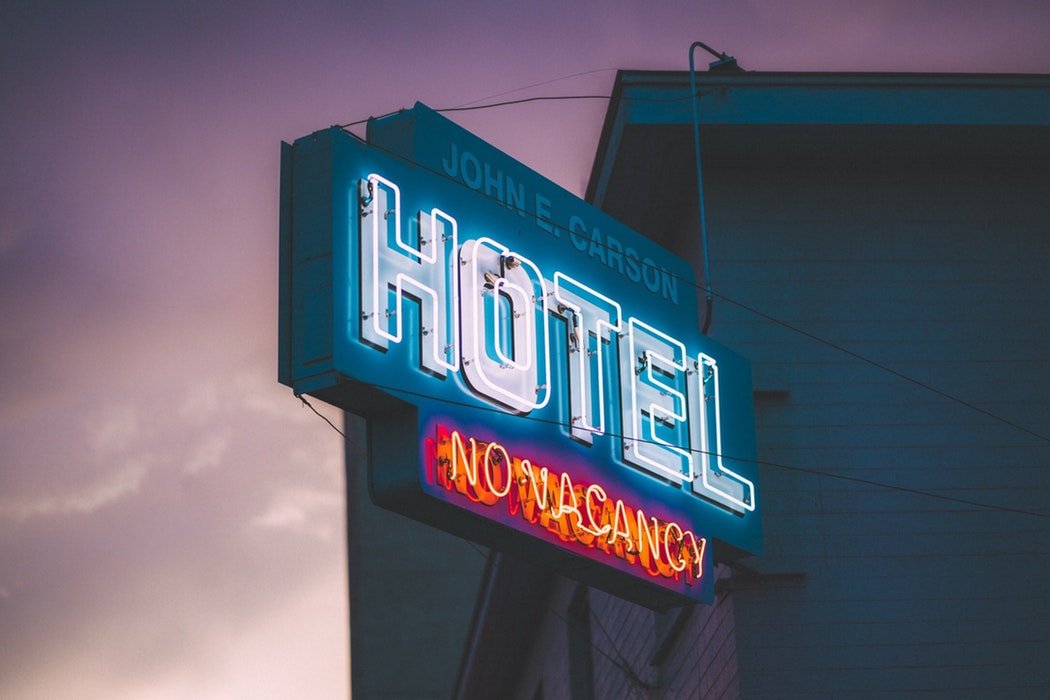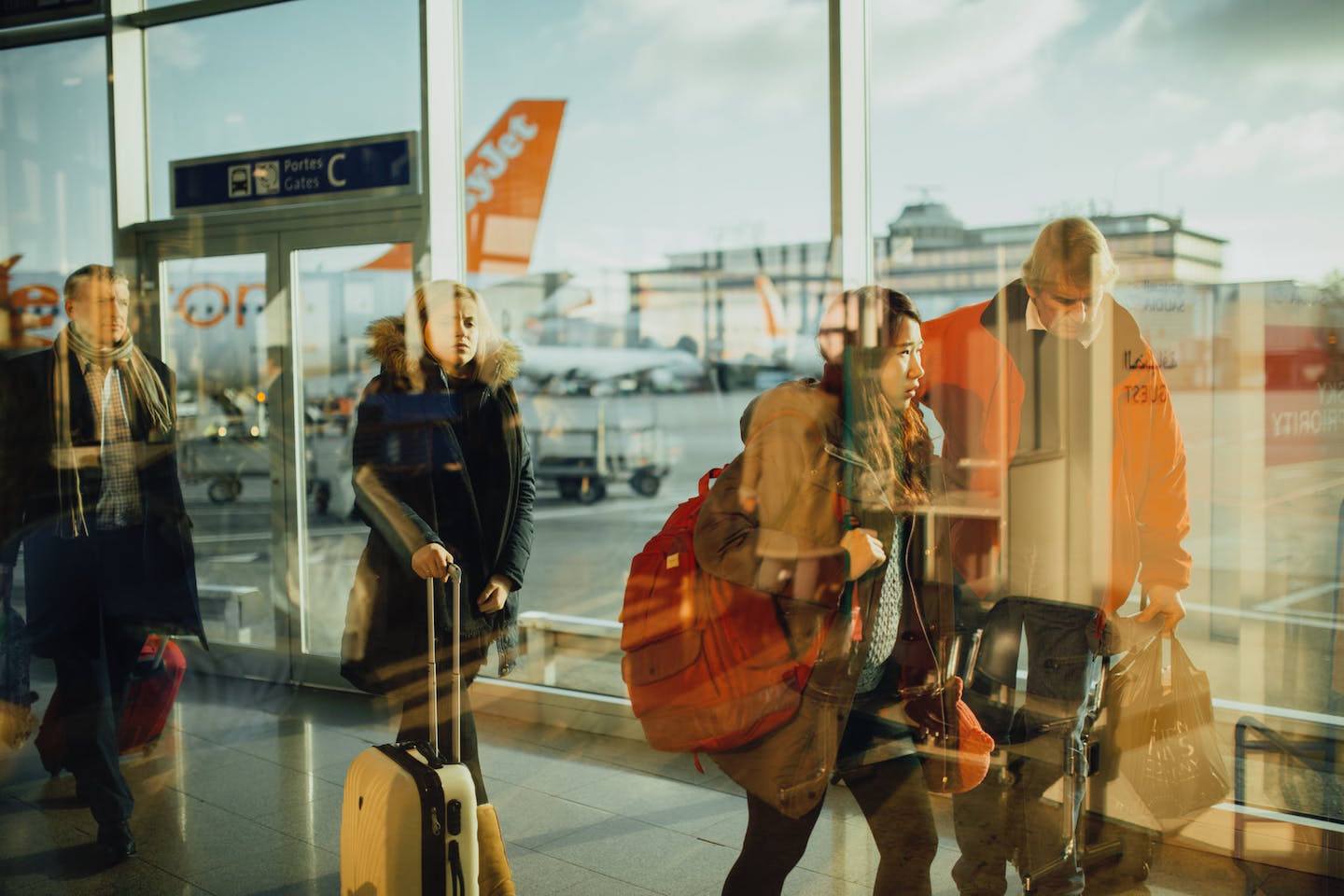Business
What to do when your hotel reservation goes missing
Always remember that keeping a hard copy of a reservation is handy.

After a long drive from Buffalo to Gananoque, Ontario, Adam Cole’s hotel delivered some bad news for him: His reservation was “gone.”
“I had a confirmation from my travel agent,” says Cole, director of a music school in Atlanta, “but there was no room.”
The Coles needed a place to stay, and the independent motel was booked solid and suggested he try his luck elsewhere. “I had a toddler and a 12-year-old in the car, and we’d just spent all day in the car, including a long delay at the Canadian border,” he recalls.
What went wrong? Cole suspects the hotel sold more rooms than it had. A property typically oversells its room by between two percent and 10 percent, depending on the time of year, anticipating that guests will cancel their reservations. But when everyone shows up, the hotel can’t accommodate all travelers who booked rooms. A smaller percentage of reservations get lost by the hotel or an intermediary such as a travel agent or website.
The missing reservation is a common travel problem with a little-known solution. While overbooking is perfectly legal, the hotel industry also has industry-standard policies in effect to prevent guests such as Cole from being kicked out on the street. If you know the rules, plus a few insider strategies, you’ll never be without a room.
When your reservation is ‘lost’
A hotel should never send you packing when your reservation goes missing, particularly if you have a record of the booking. And if it tries, you should stand your ground and ask the hotel to fix the problem. That’s what Cole did when his motel tried to send him away.
“After a while, they offered to send me to another hotel,” he says. “It wasn’t the nicest place, but it worked.”
Without knowing it, he’d discovered an industry-wide policy called “walking.” If a hotel turns you away even if you have a reservation, it’s customary to send you to a comparable property. Also, it may pay for your first night’s stay and cover transportation to the new hotel and any phone calls you need to make to inform friends or colleagues.
Just asking that question—”Can you walk me to another hotel?”—is usually enough to set the wheels in motion. No need to cause a scene. No need to negotiate.
What if the reservation was never made?
But what if the hotel has never heard from you or your travel agent? What if the reservation never existed? That’s a little trickier, and it’s a problem I’ve encountered on multiple occasions as a consumer advocate.
“Often, computer systems don’t match up, so the confirmation number from the site used to book your stay doesn’t always match the reservation number issued by the hotel, causing even more confusion,” says Michael Sheridan, an assistant professor of tourism and hospitality management at Temple University.

Direct bookings made through airlines or hotels avoid problems involving third parties. (Source)
But there are other ways a reservation can get lost. Smaller hotels with less reliable IT systems may lose reservations, especially those made through a third party such as an agent or online travel agency. The technology is far from perfect.
“Booking directly with the hotel, airline or rental car agency avoids any problems that can occur with a third party or middleman,” Sheridan adds.
Whether you book through a third party or not, it’s a good idea to keep a copy of your reservation either on your smartphone or as a hard copy. If it goes missing, you have evidence that you at least made a reservation.
How to handle a lost reservation
If you ever find yourself in the same situation as Cole, remain calm. It doesn’t matter who lost the reservation. Assigning blame isn’t going to get you a room for the night. If anything, it could ensure that you don’t have a room, or it could prompt a hotel representative to call the police to have you escorted off the property.
“Stay polite,” advises frequent hotel guest Billie Jean Bateson, a fashion consultant from Houston. “Try to convince the clerk to give you a room. If the clerk seems to be helpless, stay polite and ask for a reservations manager or a general manager. Explain the situation calmly and your desire to stay in the place.”
Also, call your travel agent. Even an online travel agent should offer a 24-hour phone number where a representative can find either a room at that hotel or a comparable room. If you have the documentation you need and neither your agent nor the hotel will assist you, politely ask to be “walked” to another hotel. Hotel staff will know what they need to do next, and if they don’t, you’re probably not at a hotel.
Tips for avoiding a missing reservation
Call to confirm before your visit
Yes, even if you booked directly with the hotel. Verify and confirm your reservation number. If possible, get the name of the employee you speak with and make a note of it. That way, if something goes wrong, you can say, “I spoke with so-and-so in your reservations department. She confirmed this.”
Double check your dates
Even veteran travelers get hotel dates wrong. The confusion comes because you’re spending at least one night, so your check-in is on one day and the check-out is on the next. I’ve seen professional travel agents confuse these two at times, leaving me standing at the front desk without a reservation.
Make a printout of your reservation
A hard copy or printout remains the most reliable evidence of your reservation. Besides, you don’t want a stranger pawing around on your smartphone while you’re standing on the other side of the counter.
—
DISCLAIMER: This article expresses my own ideas and opinions. Any information I have shared are from sources that I believe to be reliable and accurate. I did not receive any financial compensation for writing this post, nor do I own any shares in any company I’ve mentioned. I encourage any reader to do their own diligent research first before making any investment decisions.

-

 Fintech7 days ago
Fintech7 days agoImpacta VC Backs Quipu to Expand AI-Driven Credit Access in Latin America
-

 Fintech2 weeks ago
Fintech2 weeks agoNubank Launches in Argentina With $474M Bet to Shake Up the Fintech Market
-

 Impact Investing4 days ago
Impact Investing4 days agoClimate Losses Drive New Risk Training in Agriculture Led by Cineas and Asnacodi Italia
-

 Biotech2 weeks ago
Biotech2 weeks agoWhy Bioceres Shares Slide Into Penny Stock Territory


























You must be logged in to post a comment Login